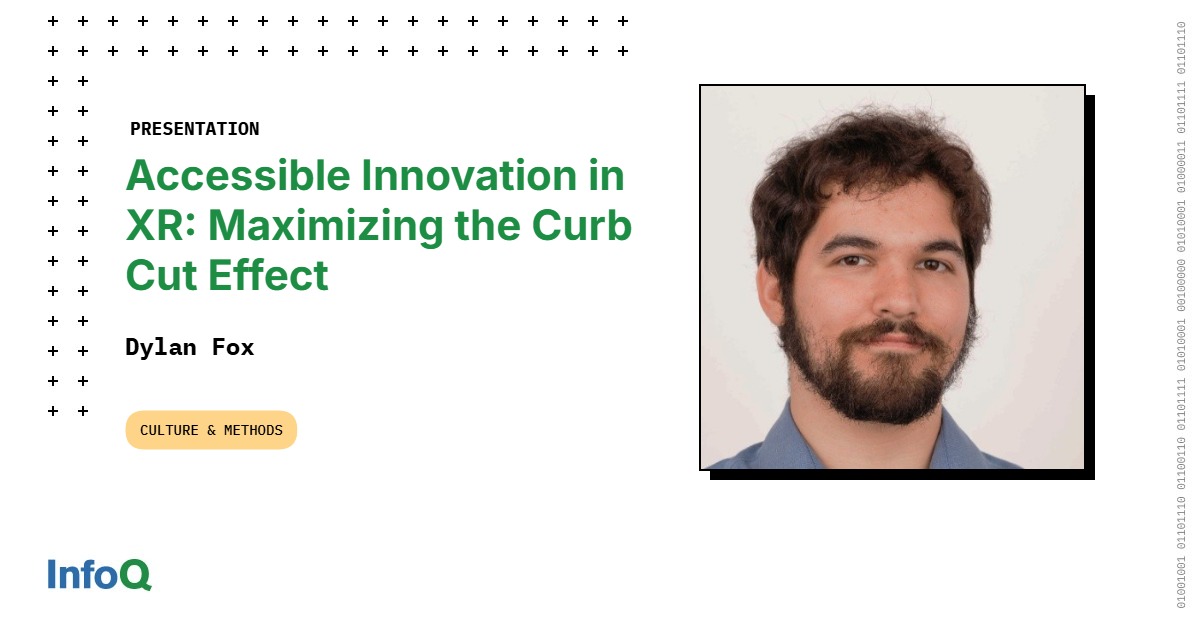
"Accessibility is a broad topic, and I want to cover three terms we're going to use throughout this presentation that are very closely related to one another: accessibility, impairment, and disability. Accessibility fundamentally just means that something is usable regardless of your ability. Abilities come in all shapes and sizes. There's the ability to hear, to see, to move freely, to process information. Every single one of us has vastly different abilities that enable us to do what we do every day."
"Next, impairment. Impairment is something that hampers our abilities. That could be something that is intrinsic to us, or it could be something external. For example, you could have a vision impairment because you lost a sword fight to a pirate and you got your eye out. Or you could have a visual impairment because it's dark outside and you can't see very well."
"Finally, disability. Specifically, I'm talking about something called the social model of disability. This is the idea that disability is the mismatch between ability and expectation. Somebody who's in a wheelchair may have a long-term impairment, but that impairment doesn't turn into a disability until they come to an obstacle that they can't cross in that wheelchair, like a building that only has stairs as its entrance."
Accessibility means that something is usable regardless of a person's abilities, which vary across hearing, vision, mobility, and information processing. Impairment describes factors that hamper abilities and can be intrinsic or external. Disability follows the social model as the mismatch between ability and expectation when environmental barriers prevent participation. Curb cuts exemplify design changes that aid specific groups while producing widespread benefits and innovation. Inclusive extended reality requires attention to diverse needs to maximize accessibility and the curb-cut effect. Scholarly examples demonstrate how accessible XR features can enhance usability, foster innovation, and extend benefits to broader populations.
Read at InfoQ
Unable to calculate read time
Collection
[
|
...
]